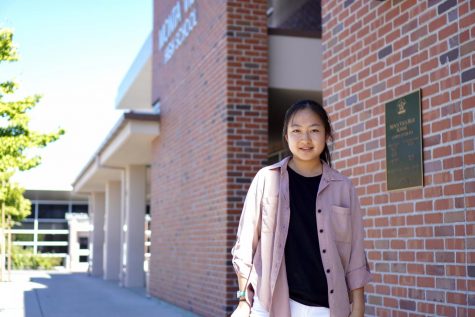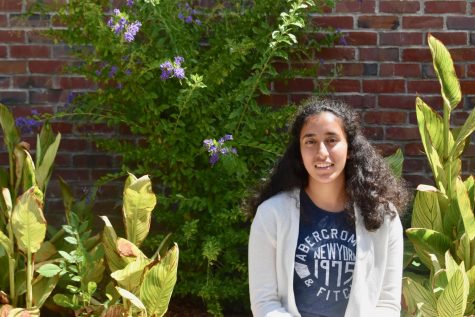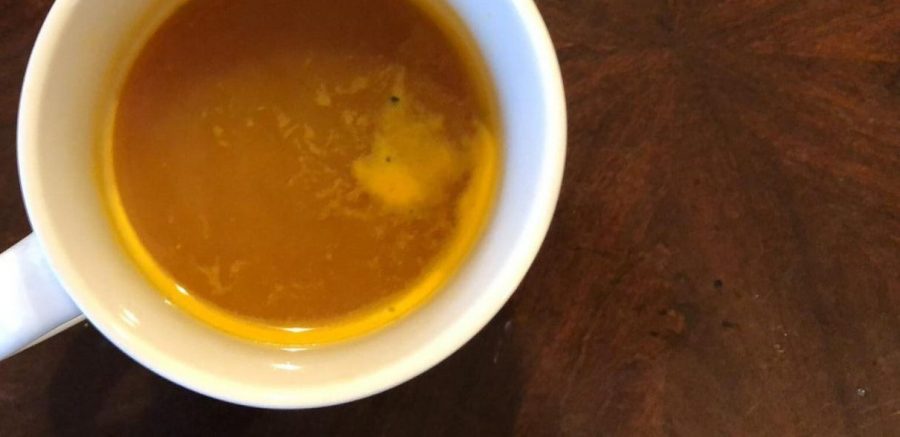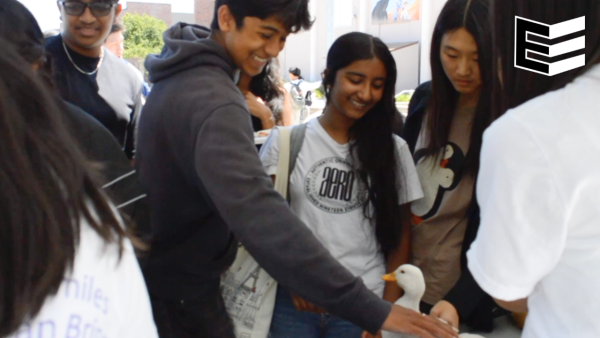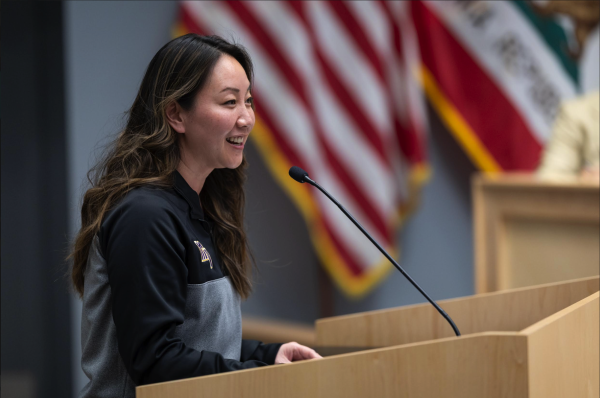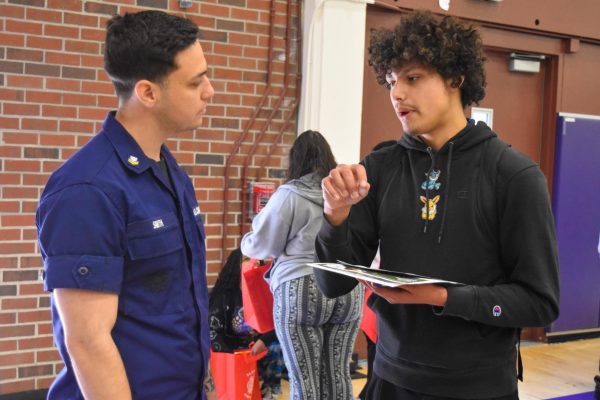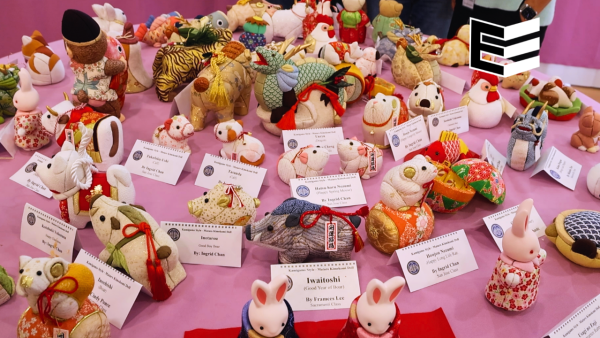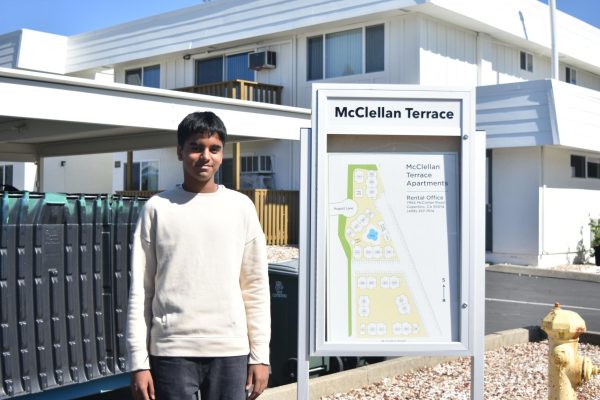How culture plays a role in the different remedies for COVID-19
Students share their parents’ beliefs for preventing the virus
Used with permission of Vidusha Adira
Sophomore VIdusha Adira and her mother Uma Adira routinely drink tumeric water to keep themselves healthy
As the number of COVID-19 cases rises globally, many MVHS students and parents are becoming increasingly concerned about contraction. Some MVHS parents have taken matters into their own hands by using practices originating from their cultures and heritage in an attempt to avoid the disease, some of which are often spread through social media, despite there being no scientific proof or research to confirm that they cure the virus.
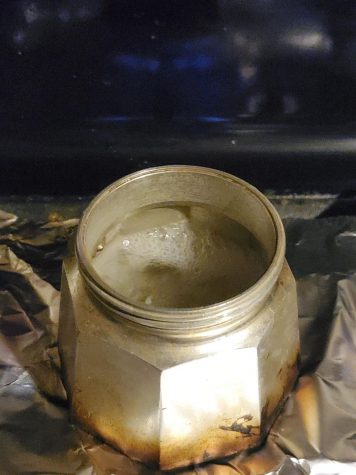
Freshmen Agnes Wang’s mother uses vinegar water to prevent the spread of COVID-19 by placing cups of them around her house
Freshman Agnes Wang noticed that her mother started putting pots of vinegar in the different rooms of her house shortly after FUHSD decided to close all campuses to prevent the further spread of COVID-19.
“Vinegar is a disinfectant, so [my mom] thought if we inhale it, we could also [remove] germs in our bod[ies],” Wang said. “I personally don’t think it affects me very much. I don’t feel safer or less safe when [I use it].”
Similarly, junior Archana Mucharla has also noticed her mother using different home remedies to keep her and her family safe from COVID-19. Mucharla states that her mother often shares these remedies with her friends and families, while obtaining new methods from them as well. Mucharla’s mother learned on the popular social media app Whatsapp that onions absorb bacteria that cause illnesses, so she began using them as a means to ward off the virus.
“[My mom] just cut up a bunch of onions and put it around our house and now it’s just something we do,” Mucharla said. “When we sleep, she’ll just pop in [and] drop an onion off.”
While Mucharla’s mother strongly believes in these practices, Mucharla understands that these methods are shared based on ungrounded evidence, thus, she does not believe they will prevent or cure COVID-19.
In contrast, freshman Vidusha Adira drinks turmeric water to keep her body healthy, despite not enjoying the taste of it, because she believes she will be less likely to catch COVID-19 after consuming it. After noticing that her father had a scratchy throat after coming back from a trip to Denver in March, her mother, Uma Adira, decided to give turmeric water to her family. She requested everyone to drink turmeric water, in addition to a variety of other remedies, to keep her family as strong as possible to prevent illness. After recommending her family to drink turmeric water, she noticed that her husband’s health gradually improved. According to Uma, turmeric water contains many antioxidants; thus, she has high hopes for it being a temporary relief, a method to only kill the bacteria or virus in the threat so it doesn’t go beyond it.
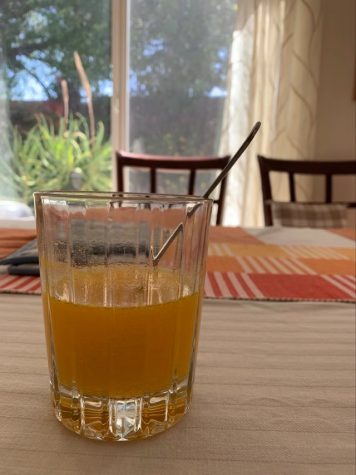
According to Uma Adira, tumeric water contains antioxidants that kill bacteria and viruses in the throat
Uma also follows other practices such as watching the amount of cold products she consumes; she drinks only warm or hot water and avoids yogurt or dairy products. She believes that because hot foods often kill bacteria and cold temperatures tend to allow bacteria to grow, avoiding cold food can lower the effectiveness of your immune system.
Wang, Vidusha and Uma all agree that these practices are very common among Asian populations due to cultural and medicinal history. Uma acknowledges that different ethnic groups will inevitably develop different methods for addressing the virus. Wang thinks that many Chinese people, for example, like to use these practices because they are derived from cultures that existed in China hundred of years ago.
“[Chinese people] believed a lot more in natural remedies [than] other cultures might,” Wang said. “It’s part of a long history of medicine [in the country]. When China wasn’t very technologically advanced, they had [to use] what they had, which [was] natural remedies.”
According to Vidusha and Uma, turmeric water has been a remedy used by Indian populations to relieve different symptoms and has been passed down through generations of her family.
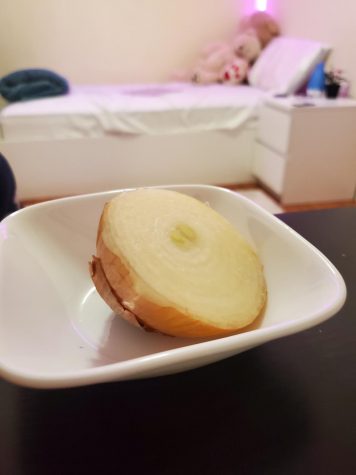
Junior Archana Mucharla keeps an onion in her room because her mother believes it will decrease her chances from catching COVID-19
“It’s like a home remedy that we use to keep the peace of mind,” Vidusha said. “When I’m older I’m probably just going to be drinking turmeric water [when] I’m sick because it’s a big part of the culture. If you ask a lot of Indian people, ‘Oh, what do your parents give you when you’re sick,’ or, ‘what’s the main ingredient in curry and whatnot,’ it’ll always just be tumeric. They add tumeric to everything — it’s ingrained into you for that long [that] you’re probably going to still continue that practice.”
Additionally, Mucharla offers the perspective that these practices exist to relieve the stress many may feel about the fact that there is currently no treatment for the virus. Although she does not believe in these practices, she understands why her mother and her family would believe in them.
“It’s [an] illusion of control,” Mucharla said. “Since it doesn’t really interfere with my daily life and social functioning, those little things don’t feel like that much of a sacrifice when you see the other side of it. It might be like [the] placebo effect — we think it’s working, but [we] don’t know if something would’ve happened in the first place.”
Although both Mucharla and Wang see these practices as traditions that have been passed down in their families, Uma sees these as cultural knowledge that is being used in a time of great uncertainty. They both acknowledge that in the absence of effective COVID-19 treatment, other ideas can flourish and often make people feel safer about their health.
“There’s no medication for [COVID-19]. [Based on] whatever culture you come from, you want to adopt that [culture],” Uma said. “You want to say, ‘OK, there’s no medicine, we don’t know, it seems pretty terminal. So, I’m going to use whatever I know [to keep us safe].’ Whichever race you [are], whichever culture you’re from, you’re just trying to use it [to stay safe].”
